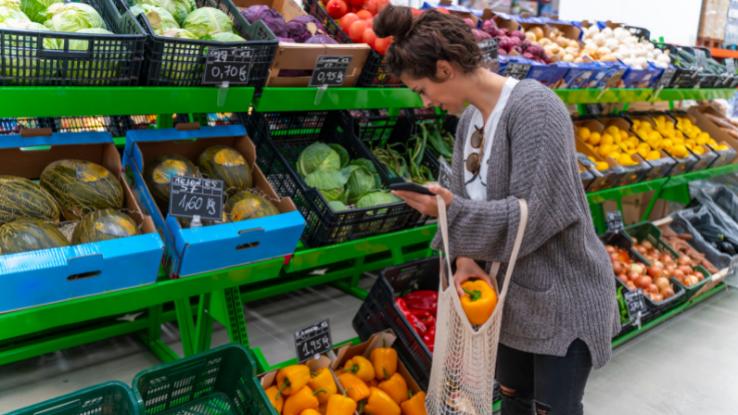30 Day 1500 Calorie Diet Vegetarian

Those unfamiliar with the terms "vegan" and "vegetarian" have probably pondered the difference between the two. They both indicate that someone doesn't eat meat, right? So, aren't they synonymous? Not exactly.
What these terms do have in common is that they both refer to dietary choices that limit one's intake of animal products. Vegetarianism, however, encompasses quite a few sub-categories — and one of those happens to be veganism. In non-vegan vegetarian diets, an individual won't eat meat, like poultry or beef, but they may consume other animal byproducts, such as milk, cheese and eggs. Vegans, on the other hand, follow the most restrictive form of vegetarianism and, as such, won't eat any animal byproducts. In most cases, vegans will also avoid using other, non-edible animal byproducts, such as wool or leather.
Some folks choose to follow vegetarian or vegan diets due to health concerns, while others' choices stem from the fight for animals rights or to lessen one's impact on the environment. (After all, raising livestock consumes a lot of land and water, among other resources.) As of 2018, 5% of adults in the United States said they follow a vegetarian diet, while 3% reported following a vegan diet.
So, whether you're interested in trying one of these diets for yourself or if you're going to be cooking for someone who is vegetarian or vegan, it's important to understand the fundamental differences between the terms.
Vegetarianism
As mentioned above, vegetarian is a broad term used to describe a person who refrains from eating any form of meat, poultry or (in some cases) seafood. However, there are several categories of vegetarianism that allow individuals to choose what to exclude and include from their diets. Different types of vegetarianism include the following:
Semi-vegetarian
- The term "semi-vegetarian" has been used to describe a person who is mainly vegetarian, but occasionally consumes meat, fish, or poultry. In some cases, a semi-vegetarian will only refrain from eating a specific type of animal rather than all animals. An example would be a person who chooses to eat fish and poultry, but refrains from eating any type of red meat, like pork or beef. Semi-vegetarians are sometimes referred to as "flexitarians."
Pescatarian
- Those who choose a pescatarian diet are opting to include fish and seafood in their intake, but not other types of meat or poultry.
Ovo-lacto-vegetarian
- An ovo-lacto-vegetarian is a person who does not eat the flesh of animals, but does eat animal byproducts, like eggs and milk. Ovo-lacto-vegetarians are considered to be the largest group of vegetarians. Moreover, the inclusion of eggs and milk allows these types of vegetarians to gain most of the vital nutrients they would typically be missing out on by not eating any meat, poultry or seafood.
Ovo-vegetarian
- Vegetarians who consume eggs, but still refrain from other animal byproducts, are considered ovo-vegetarians. In fact, eggs are the only food separating ovo-vegetarians from vegans.
Lacto-vegetarian
- A lacto-vegetarian is someone who follows a vegetarian diet while consuming dairy products, like milk and cheese. These individuals, however, do not eat eggs.
Veganism
There are many reasons a person may choose to practice veganism. Some people choose to be vegan for health or environmental reasons, while others do so for ethical reasons. Whatever the reason may be, it's important for vegans to supplement the nutrients they may be missing out on. That is, in order to get adequate intake of the protein, calcium, vitamins, and other nutrients typically found in animal products, those practicing a vegan diet often incorporate higher amounts of the following foods:
- Beans and lentils
- Whole wheat grains
- Soy and soy milk
- Dark green vegetables
- Nuts and nut butters
- Apples, oranges, bananas
- Fortified fruit juices or cereals

Health Concerns Associated With Vegetarian & Vegan Diets
In most cases, vegetarians and vegans are just as healthy as non-vegetarians. However, it is vitally important for all vegetarians to avoid deficiencies by maintaining a balanced, nutrient-filled diet. If your vegan or vegetarian diet doesn't include the daily recommended amount of certain nutrients, you may find yourself experiencing loss of energy, dizziness, or, in some cases, serious arrhythmias of the heart. Be sure to include the recommended daily intake of the following:
- Vitamin B12
- Calcium
- Folic acid
- Vitamin E
- Iron
- Magnesium
- Zinc
- Omega-3 fatty acids
Both vegetarianism and veganism require careful planning to maintain balance in your daily diet. Consider consulting your medical provider — or a registered dietitian — to ensure you're getting all of your essential nutrients. All of this said, if you're considering vegetarianism or veganism, be sure to understand which diet is right for you and your particular health concerns.
Resource Links:
- "Comparison of Sociodemographic and Nutritional Characteristics between Self-Reported Vegetarians, Vegans, and Meat-Eaters from the NutriNet-Santé Study" via The Science of Vegetarian Nutrition and Health, MDPI
- "Is a vegetarian or vegan diet for you?" via Harvard Health Publishing, Harvard Medical School
- "Is a Vegetarian or Vegan Diet Healthy?" via Cedars Sinai
- "Plant-based, vegetarian and vegan diets" via Heart Foundation
- "Snapshot: Few Americans Vegetarian or Vegan" via Gallup
MORE FROM SYMPTOMFIND.COM
30 Day 1500 Calorie Diet Vegetarian
Source: https://www.symptomfind.com/health/differences-between-vegan-and-vegetarian-diet?utm_content=params%3Ao%3D740013%26ad%3DdirN%26qo%3DserpIndex
0 Response to "30 Day 1500 Calorie Diet Vegetarian"
Post a Comment